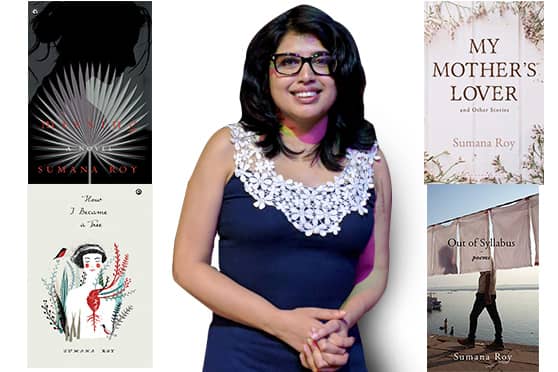'Never stop writing, never stop submitting': Author Sumana Roy


To all those dreaming to be writers, a course in Creative Writing can give the much-needed push to stay on course. But does taking a course help you get better at being a writer? Moreover, does it open up career opportunities?
Author Sumana Roy, who is an associate professor of Creative Writing at Ashoka University, definitely thinks so. Roy’s literary works include the novel Missing, the non-fiction book How I became a tree, the poetry collection Out of Syllabus and the short story collection My Mother’s Lover and Other Stories.
We caught up with Roy for advice on charting a career in writing.
Edugraph: What exactly is taught in a Creative Writing course?
Sumana Roy: I teach poetry and essay workshops, an introductory course to Creative Writing where I try to introduce my students to various genres (the poem, essay, short fiction, letter, interview, among others) and a course on the Rasa Theory. We read texts (in English and in translation), discuss them, how they work and so on. Students share their writing with their peers, and we discuss them, annotating them, offering feedback. The aim is always to create a community of support, to make the writing better, not bully young writers in their apprenticeship period.
What kind of career prospects are there in this field?
SR: Writing skills are helpful in a range of professions. Journalism, editing, publishing, advertising, film, research-oriented professions, public policy, and so on. And there’s the obvious, to become a writer. Writers such as myself now have the opportunity to teach creative writing in colleges and universities -- another career option.
Does a degree in Creative Writing help kickstart one’s career as a writer?
SR: Not any more than a degree in dance can help start off a dancer’s career. Courses such as this are meant to introduce the student to a long career of practice, to inaugurate a life of riyaz, to encourage a temperament of experiment, and the imagination to see oneself as part of a literary and political tradition.
Would you recommend any online course or courses on Creative Writing that students can take on the side?
SR: Take any course that takes you to a space that you have not encountered before. It might open up something in you as a creative person. The courses on creative practice that I would recommend are -- Fiction Workshop with novelist and playwright Vivek Shanbhag; Indian Poetics with Bharatnatyam exponent and LGBTQ activist Navtej Singh Johar (which Johar also teaches online at Studio Abhyas); The Creative and Critical with author and essayist Amit Chaudhuri; any course on fiction or creativity taught by Canadian philosopher Clancy Martin.
Having said that, I would ask everyone to think of any creative practice as something done ‘on the side’. Regular practice is important, but one must perhaps also have a life that distracts. Distraction is as necessary to writing and creating as it is to living, I think.
Does taking part in writing contests like the National Poetry Writing Month help one hone writing skills?
SR: It gives one practice, and that is most important. It might also force two other things: a writing habit and a necessary urge to experiment.
What are the benefits of being part of a writing community? Would you recommend it?
SR: Oh yes, if it is a community that provides support and, by support, I mean something that offers the writer courage, emotional and intellectual sustenance, and one that has the elasticity to accommodate even those that disagree or argue with the tradition and practice and thought of the group. I do recommend it if it can be a space such as I imagine above. In truth, though, such spaces are rare, for most groups are self-serving in a way.
The courses on creative practice that I would recommend are — Fiction Workshop with novelist and playwright Vivek Shanbhag; Indian Poetics with Bharatnatyam exponent and LGBTQ activist Navtej Singh Johar; The Creative and Critical with author and essayist Amit Chaudhuri; any course on fiction or creativity taught by Canadian philosopher Clancy Martin.- Sumana Roy
What are the top five things aspiring writers should keep in mind?
SR: I will share what is important to me:
What is your advice for all those who dream of becoming published writers?
SR: To take their time to get published, to not take rejections to heart; it’s only one person’s taste that decides this after all. To remember that rejections by mainstream publications is only a manifestation of their economic ambition, not evidence of any lack of merit in your writing. Never stop writing, never stop submitting, and never stop reminding yourself that your writing is not dependent on publishing. And never delete your writing -- everything isn’t meant for publication. And the old writing returns in the most unexpected ways.